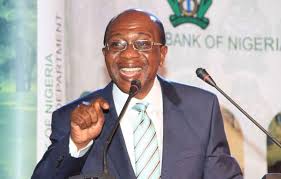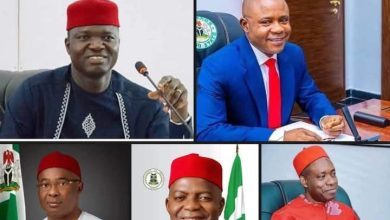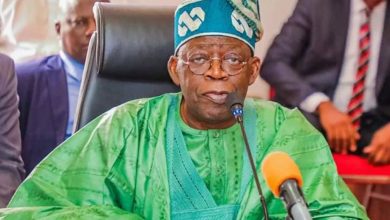Emefiele: Of Precedence, Consequence and Future of the Office of the CBN Governor – Editorial

“Surely central bankers should avoid political entanglement?“- Mallaby, Sebastian ‘The Man Who Knew: Life and Times of Alan Grenspan’
The Nigerian economy, quite frankly, is in a perilous state under the current monetary and fiscal regime that it can ill-afford and absorb any distractions.
Indeed, fiscal and monetary policy has been strenuously challenged and unable to deliver the sovereign from a resort to, reliance on and consequential rising debt / servicing posture to meet obligations. This situation is exacerbated by an absence of clarity on the pathway for recovery and growth; and the disconnect between regulatory success and strong moral principles underpinning success, signals and market systems.
Unorthodox monetary interventions that were designed to be temporary and palliative in nature, has now become permanent and poisonous to the principles of an open market system; the consequence of which is evident in the economic indicators that delivered a national inflation rate of 17.6% as of February 2022, a national domestic unemployment rate of 33.3% as of Q4 2020, a real gross domestic growth rate of 3.98% as of Q4 2021, and a year-on-year (Y-o-Y) 2021 growth rate of 3.4%.
This increasingly brittle economy for which the Central Bank of Nigeria (CBN) has taken a pole position in fronting and making ad-hoc interventions was beset with a political twist with calls in some quarters for the Governor of the CBN to contest for the office of the President of the Federation in the 2023 elections. The sponsored publications, adverts, rally and posters supporting the incumbent CBN governor riled nerves as professional associations, members of chambers of commerce, analysts, governance practitioners, and other private and public entities either shrugged their shoulders or expressed their scorn in private (almost in complete surrender) about the conduct, context, and commission of acts that collectively undermine the institutional optics of a monetary policy regulator who is invested with responsibility for providing signalling in the economy.
The supporters of this Emefiele-for-President group represent that he was within his rights to aspire to the office of the President on account of his ‘performance’ and that no existing law debars him from contesting for a public office. They back up their arguments with both legal, moral, and institutional precedence largely premised on the Italian example of Dr Mario Draghi; and aver in loud statements that his aspirations do not compromise his conduct in office.
The supporters are right in their opinions but not in fact. There are quality arguments and interpretations upon which the legal, moral and institutional grounds they stand on can and should be interrogated. Easily, the moral argument is not winnable as it reflects personal values and social outlook; and while we are not able to judge that, we are able to take on the more serious institutional argument, making the case that this distraction is both self-defeating and should never be allowed to be a precedence.
The Correlation between Strong Moral Principles and Regulatory Success
The CBN’s role as the principal signalling agency for monetary policy action influencing macroeconomic activity requires that whoever occupies the position of CBN governor must be technically skilled, professionally committed and administratively focused, ethically responsible and morally principled.
In recognition of these character traits and person attributes, Section 1 (3) of the CBN Act 2007 guarantees the independence of the CBN, while Section 9 of the Act presumes that the CBN governor would have no other vocation than running the CBN.
Admittedly, it may (given where we are at this stage) be necessary to test the law by requiring a court of competent jurisdiction to interpret the concept of ‘vocation’ in relation to the office of the CBN governor. It should be interesting to find out if they would consider politics and partisan electioneering matters in which a sitting CBN governor is involved as constituting a breach of intent. Until tested legally, much of the discourse in the public space remains a matter of conjecture and of the sanctity of conventions; and this fits into the pro Emefiele-for-President argument.
That said, Proshare argues that the institutional integrity of the regulator should not be sacrificed on the slab of personal political aspirations or public projections of same. The credibility of the CBN’s signalling actions needs ultimate preservation, with no economic or public agents having to second-guess the intentions of the regulatory chief.
A few entities have suggested that if Emefiele decides to run for the Office of the President or Governor of Delta State for example, he has precedence in the case of the emergence of Dr Mario Draghi of Italy, who in 2021 became the Italian Prime Minister after a long stint as a Professor of Economics, Governor of the Bank of Italy, and, President of the European Central Bank (ECB).
Unfortunately, the comparison between Emefiele and Draghi ends abruptly on the resounding difference in context and premise.
Proshare has interrogated the parallels and believe that the recent agitation by the group of people working to draft the Central Bank of Nigeria (CBN) governor, Mr. Godwin Emefiele, into partisan politics while in office, is a disservice to the CBN governor’s office.
In a tweet on his personal Twitter handle on March 28, 2022, Mr. Emefiele confirmed this position when he observed that “my focus at this time is a robust monetary policy and fighting inflation which is now a global problem; building a strong financial system in an increasingly uncertain global economy.“
The problem with this statement however is that the governor’s disclaimer did little to douse concerns raised by the political gambit around an “eternal search for political immunity” which the political office campaign triggered in analysts. This absence of definitiveness and clarity unfortunately portrays the CBN governor as full of guile and opens its actions to public scrutiny and debate; one that lends to a second-guessing of the intentions of the actions by the country’s top monetary policy chief.
Source: PM News, Vanguard, and Premium Times
Mallaby, Sebastian, in “The Man Who Knew: Life and Times of Alan Grenspan (p. 399)”, for which the Washington Post book review described as the most deeply reported work on the dry art of central banking since William Greider’s “Secrets of the Temple” (1988) noted that “surely central bankers should avoid political entanglement.”
In consonance with the dictum above, section 11 (1) (a) of the 2007 CBN Act bars the CBN governor from being a member of parliament – whether state or federal; or as a member of government. The combined reading of all of the relevant sections of the Act shows that his more recent actions, from the soccer team episode in Cameroun where he made a representation on behalf of an individual to a private company launch, all lead up to the concerns whether these are indicators of an expanded role for the CBN or a political move by the governor of CBN.
Proshare, therefore, believes that if the CBN governor is interested in a political office, as is his right, he should:
- Clear out his desk, prepare his hand-over notes and resign as the CBN governor to respond to what he perceives to be a higher calling; and
- Explain his intentions to his audiences and thereafter contest the primaries of a political party of his choice; and win or lose such primaries to contest for the actual office in accordance with the INEC rules.
Emefiele has a choice and he should feel free to pursue such ambitions without using the instrumentality of office to project or signal to entities to support, engage or contribute to shadowy campaign structures. Institutional conventions matter and avoiding a travesty of trust requires that Emefiele’s supporters’ Mario Draghi’s argument is inappropriate and untenable, and we must put this charade to an end.
For proper context, Italy’s current Prime Minister, Mario Draghi, was a one-time governor of Italy’s Central Bank, the Bank of Italy, and a former President of the European Central Bank (ECB) who became the Prime Minister in 2021, having spent the 1980s as an Economics lecturer and Director-General of the Italian Treasury. He left the latter role and joined the staff of Goldman Sachs, until 2006, when he became the head of Italy’s monetary policy management team and Central Bank governor. In 2011, the European Council appointed Mr Draghi as the President of the European Central Bank (ECB). It was based on this stellar work experience that he engaged the public.
“Super Mario” – a moniker the European press gave Draghi in 2019 after initiating and implementing policies that saved the Euro from collapse at the height of the Eurozone crisis – ended his term at the ECB and returned to private life until February 2021, whereupon Italian President, Sergio Matterella invited him to form a government of national unity following the resignation of previous Prime Minister Giuseppe Conte.
The attempt to draw a parallel between the alleged interest of our CBN Governor, the ‘Emperor’, Mr Godwin Emefiele in the Office of the President of Nigeria and Mario Draghi “Super Mario” as Prime Minister of Italy falls clearly on its backside. Mr Draghi NEVER contested public office as a sitting Central Bank governor.
Any attempt to contest for any political office from the position of a sitting Central Bank governor would be an abuse of office and a fierce rape of the letter and spirit of the Act under which the Central Bank of Nigeria operates.
Investment sage, Warren Buffett, once noted that “in looking for people to hire, look for three qualities: integrity, intelligence and energy. And if they don’t have the first the other two will kill you.” Nigerians are learning this lesson the hard way, and if they are not to move along the spectrum from delusion to madness, they must NOT repeat bad habits.
As Proshare, we owe it a duty to provide a rational position to protect the office. This position is supported by the statement by America’s first president, George Washington, when he noted that “do not suffer your good nature […] to say yes when you ought to say no; remember that it is a public, not a private cause that is to be injured or benefitted by your choice.”
Mr Godwin Emefiele, as a distinguished Nigerian, is perfectly competent to contest for any public office he so desires and we wish him the very best. What he does not have a right to do, is to conduct himself, while in office, as immune from the requirements of convention and decorum. This is the least we expect(ed) from those who occupy positions that exercise authority and project power unfettered and untainted by politics.
adapted from proshare




